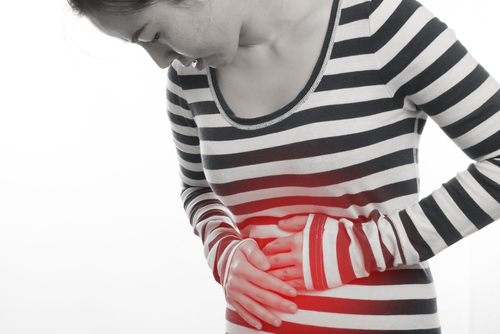AbbVie, in collaboration with Neurocrine Biosciences, has submitted a New Drug Application to the U.S. Food and Drug Administration (FDA) for its lead candidate elagolix, formerly known as ABT-620, to treat women with endometriosis and associated pelvic pain.
If approved, elagolix,an oral gonadotropin-releasing hormone antagonist, will become the first new treatment option to manage endometriosis-associated pain in more than a decade in the U.S.
“The submission represents an important step forward for women suffering from endometriosis and physicians who are in need of additional medical treatment options to help manage this chronic and painful disease,” Michael Severino, MD, executive vice president of research and development and chief scientific officer at AbbVie, said in a press release.
“Elagolix has the potential to be an important oral treatment option for women suffering from the most prevalent symptoms of endometriosis and we look forward to working with the FDA throughout the review process,” he added.
The NDA was supported by results of two very similar Phase 3 clinical trials (NCT01620528 and NCT01931670) that involved about 1,700 women with endometriosis and moderate-to-severe menstrual and non-menstrual pain. These studies showed elagolix’s therapeutic potential in reducing endometriosis-associated pain compared to placebo.
Data showed that, at three and six months, elagolix given as either 150 mg once daily or 200 mg twice daily significantly reduced the proportion of patients complaining of menstrual and non-menstrual pain associated to their disease, compared to placebo. In addition, the 200 mg twice daily dose was also showed to reduce pain during intercourse after three months of treatment compared to placebo.
Patients given the higher-dose treatment were reported to have reduced their reliance on pain medication, including nonsteroidal anti-inflammatories and opioids, at both study periods.
After six months, elagolix was also seen to reduce the proliferation of endometrial tissue.
These data were first presented during the American Society for Reproductive Medicine (ASRM) annual meeting in October 2016, and more recently published in The New England Journal of Medicine.
The most common side effects related to elagolix were hot flush, headache, and nausea. Treatment was also associated with dose-dependent reduction of bone mineral density.
Results of extension studies in patients continuing treatment for another six months are expected to be released at a future scientific meeting.

